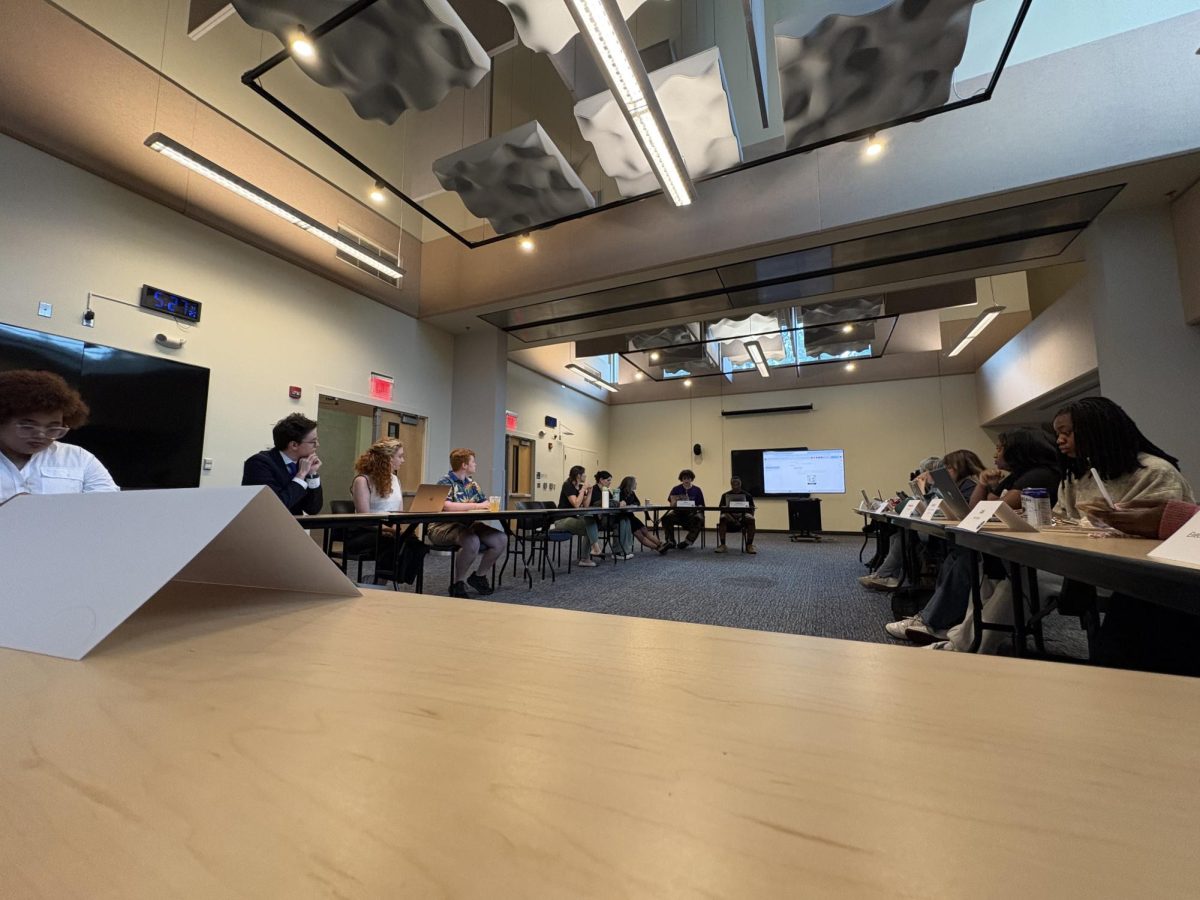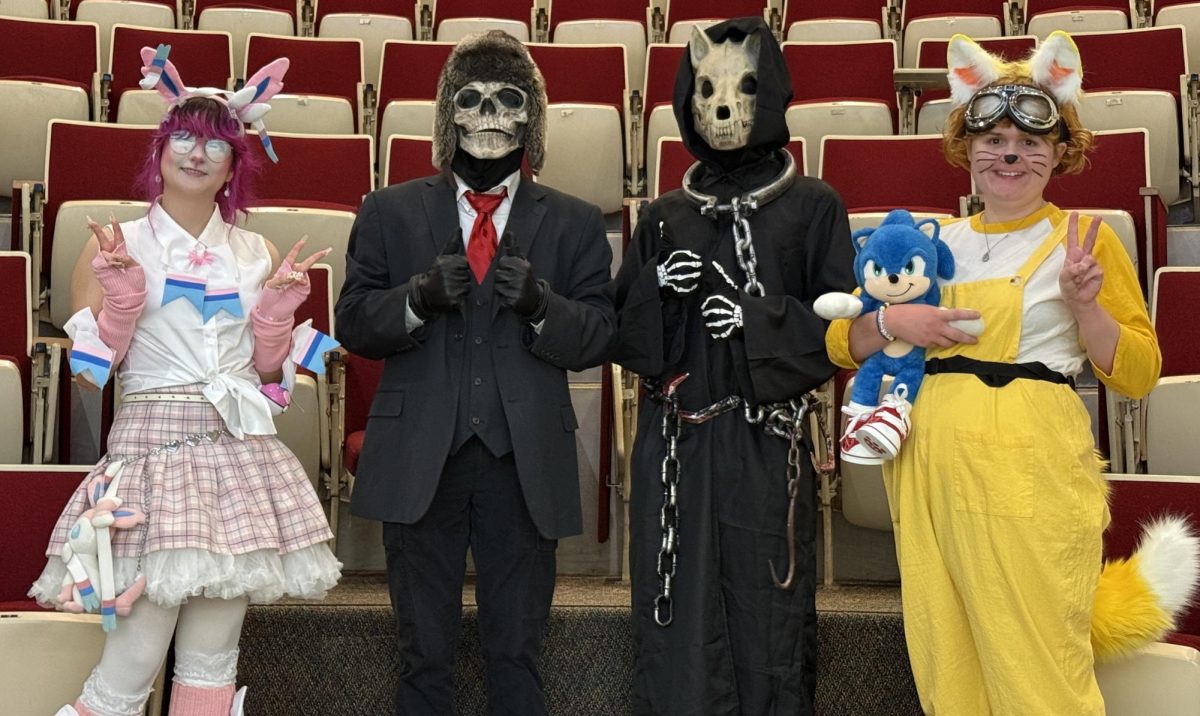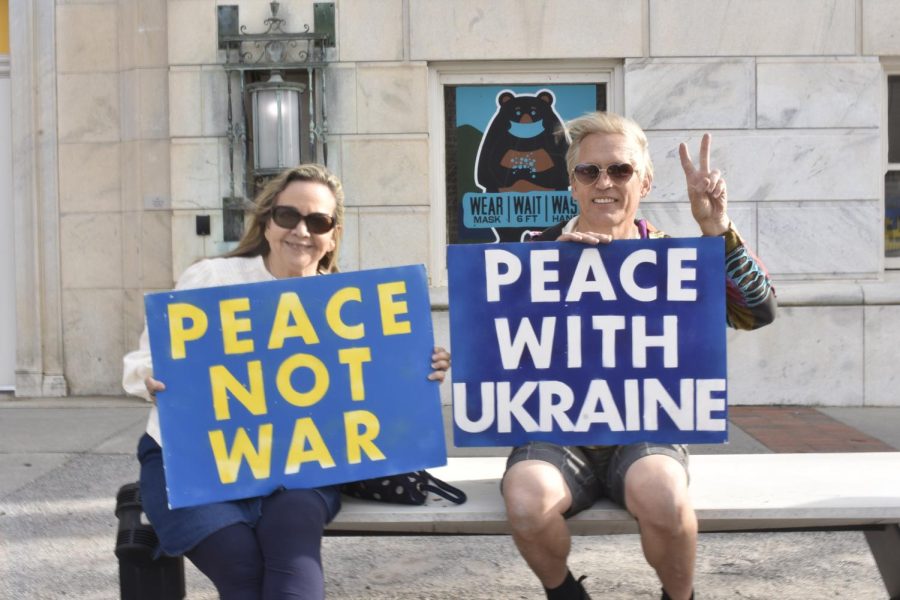Staff and students weigh in on the war between Russia and Ukraine
Lisa Wilcocks and rally organizer William Najger showing support for Ukraine.
March 7, 2022
With all eyes on Russia after their high-risk invasion of Ukraine, many in the UNC Asheville community said they have mixed feelings about the U.S.’s response to the war, but most seem to agree there isn’t sufficient cause for military involvement.
“I believe we should do everything in our power to isolate Russia through sanctions as a punishment for their aggressive actions, but I don’t feel that we should be involved militarily,” said former Marine Sgt. Elias Hatcher.
Hatcher works as a UNCA maintenance mechanic for housing operations, and said his justification for not wanting boots on the ground is because Ukraine isn’t a member of NATO, and therefore not an ally of the U.S.
“I’m a bit surprised at the scope of the invasion. I thought they might only attempt to take the regions in the east where they previously inserted Russian militia, but it seems they intend to take Kyiv and other major cities, effectively taking control of Ukraine,” he said.
Hatcher said the size of the Russian force that had amassed on the Ukraine border was a clear indication some sort of invasion was imminent, and the U.S.’s response to their escalation was lackluster at best.
“I’m disappointed with the messaging that came from our president during the build-up leading to the invasion,” Hatcher said.
According to Hatcher, President Biden laid out what the U.S. response would be limited to, and indicated a limited incursion would be responded to differently than a full-scale invasion.
“That may very well be our best approach, but to publicly state this seems to only embolden foreign powers like Russia or China when they are weighing the cost of aggression against other sovereign nations,” he said.
Hatcher said he agrees with the sanctions imposed upon Russia, but they seem to be too slow and too limited in scope to be effective.
“We cannot claim to be sanctioning Russia if we make exceptions, allowing certain interests to continue to trade with and buy energy from them. Half measures will not be effective,” he said.
The former Marine voiced concerns over the U.S. military leadership and if they can provide what is required for success should war break out between the U.S. and Russia.
“While I have my concerns about our readiness, my hope is that if military involvement does become absolutely necessary, we would have clear-headed leadership that would put aside their other interests and allow the frontline soldiers to do their job,” he said.
Though doubtful about leadership, Hatcher expressed his support for the average soldier, sailor, airman or marine.
“I have no doubt in their abilities when they’re given clear objectives to achieve, along with the training and ability to use the weaponry and equipment at their disposal,” he said.
Former Army Specialist Micah Hayes, now a junior at UNCA, said he shared Hatcher’s sentiments about the U.S.’s fighting capabilities.
“I believe the U.S. military is in a constant state of readiness. I’m not sure if we’re ready for war on a global theater, but I believe our troops are ready for this. They are built for this and train for this every day. They’re professional warriors,” he said.
Hayes said he wasn’t shocked Russia invaded due to President Vladimir Putin’s past as a KGB agent.
“This type of military movement costs millions of dollars, time and planning. He’s war ready and battle toughened. I think if he sets his mind to war, he is going to war,” Hayes said.
The U.S.’s response to the war has been diplomatic and appropriate given the situation in Ukraine, according to Hayes.
“I think other countries have not intervened because Russia is a super power in the world and very dangerous,” he said.
UNCA Political Science Professor Linda Cornett said she’s following the war closely because the relative success or failure of Putin’s challenge to the post-WWII international order could have wide-reaching consequences.
“Not only for Europe, but anywhere in the world where powerful actors might be tempted to redraw international borders more to their own liking. Especially if they thought they could do so with little cost,” she said.
According to Cornett, the invasion has breathed new life and renewed commitment into NATO and the EU, prompting calls for expansion and strengthening of both organizations.
“Ukraine is being supplied by foreign countries, and that support enhances its capacity to resist,” she said.
Despite Russia’s overwhelming military advantage over Ukraine, Cornett said Ukrainians continue to fight for their national existence which makes them intensely more motivated than the Russians.
“Occupying a country is much easier than ruling it against intense internal and external resistance, as both Russia and the U.S. learned from their entanglement in Afghanistan. Those costs tend to increase over time,” she said.


















